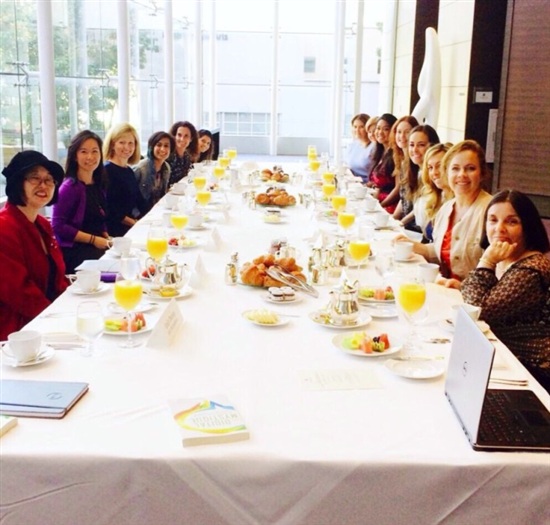Last month, I joined the UN Foundation, UN Women, the GEDI Institute, and a group of policymakers, corporate leaders and NGOs in Washington, D.C. for a discussion on closing the opportunity gap for women, and we all agreed that the time is now to bring this issue to the forefront. The key take away from that conversation was that we need to focus on sustainable actions. Earlier this month, we did just that by bringing women entrepreneurs and digital media innovators together in San Francisco to discuss how to achieve growth and help one another scale.
My biggest takeaway from our discussion: We need successful women entrepreneurs to serve as role models that inspire others. As outlined in our Gender GEDI Index, many women don’t know a woman entrepreneur nor have role models they can relate to which can inhibit their confidence around starting a business.
This is where digital and social media platforms become doubly important. Beyond building networks, when we actively share stories of women leaders, across technology, business, government and philanthropy, we inspire the next generation of women to become entrepreneurs, inventors, CEOs and leaders.
Founder of Women 2.0, Shaherose Charania, pointed out that 80 percent of the news is about people, but only 12 percent of those stories focus on women. Media innovators like Jesse Draper, creator and host of The Valley Girl Show, are changing this by committing to having 50 percent women founders and CEOs as guests. And we can do even more to amplify these inspiring stories across personal networks and on broad-reaching platforms.
Additionally, many of the entrepreneurs at the table noted that having access to networks is imperative to find resources, including funding and support, for the long term. Five years ago, we founded #DWEN to do just that – help women entrepreneurs with access to capital, networks, knowledge and technology.
But it’s not just about women helping women. Men play a critical role in creating opportunities for more women leaders. Following our discussion in San Francisco around how men increasing their involvement with women’s networks is paramount to change, I was thrilled to see UN Women and Emma Watson – herself a great example of a visible role model – launch the #HeForShe campaign to mobilize one billion men and boys as advocates and agents of change in ending the persisting inequalities faced by women and girls. At Dell, we have a group of men who are engaged in a new program aimed at galvanizing solutions that will create lasting benefit for women in IT – a traditionally male-dominated sector. They are part of the MARC initiative – Men Advocating Real Change – a community that is currently being incubated by Catalyst, an organization Dell supports that advocates for greater opportunity for women in the workplace.
These developments inspire me to keep the dialogue going and leverage Dell’s global footprint and influence to shine a light on women role models via Dell’s news site, TechPageOne, our @DellInnovators and #DWEN Twitter following and in our LinkedIn group, as well as through our global women entrepreneur networking events and the research we sponsor. Please follow us to join the conversation and help amplify the stories of the incredible women trailblazers!
(Left side, front-to-back: Emily Murase, executive director, San Francisco Department on the Status of Women; Eurie Kim, principal, Forerunner Ventures; Karen Quintos, CMO, Dell; Shaherose Charania, founder and CEO, Women 2.0; Jane D’Alessandro, EVP of business development and strategy & general counsel, Backplane; Pree Walia, head of partnerships, Women 2.0; Right side, front-to-back: Kimberlie Cerrone, co-founder and CEO, Tiatros; Kat Gordon, founder, The 3% Conference and Maternal Instinct; Elizabeth Gore, entrepreneur-in-residence, UN Foundation, Jesse Draper, creator and host, The Valley Girl Show; Sarah Granger, author, The Digital Mystique; Sumaya Kazi, founder and CEO, Sumazi; Jane Sloane, VP of programs, The Global Fund for Women; Diane Kegley, CMO, RichRelevance; Not pictured: Blair Palmer, Lab Lead, UNICEF Innovation)
